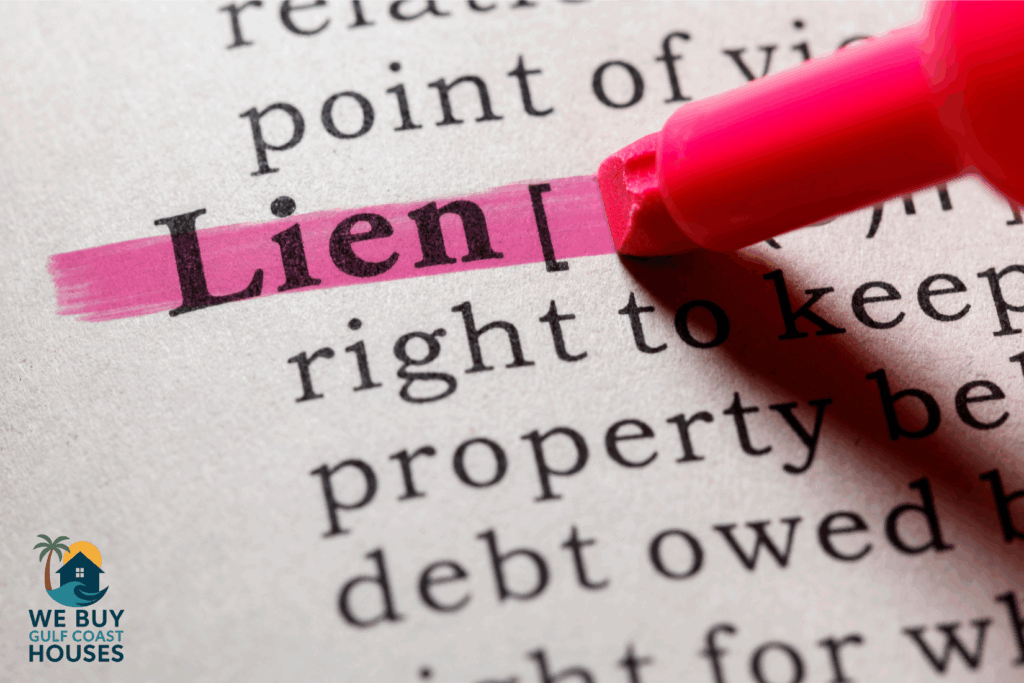When you discover a lien on your Florida property, it can feel like a looming storm cloud—unseen yet powerful enough to disrupt your plans. Whether you’re trying to sell your home or just want to protect your property rights, understanding how liens work in Florida is crucial.

What Is a Property Lien?
A property lien is a legal claim or encumbrance placed on a home or piece of real estate to secure a debt. Essentially, it gives a creditor the right to take legal action to recover what they’re owed if the property owner fails to pay. In Florida, liens can impact your ability to sell, refinance, or even retain your home.
There are several types of property liens in Florida:
- Judgment Liens – Resulting from lawsuits
- Tax Liens – From unpaid federal or local taxes
- Mechanic’s Liens – From unpaid contractors or builders
- HOA Liens – For unpaid association fees
For legal reference, see the Florida Statutes Chapter 55.
How Long Does a Lien Last in Florida?
In general, judgment liens in Florida are enforceable for 10 years but can be renewed once, extending them to 20 years total. However, the duration and enforceability of a lien depends on its type:
| Lien Type | Duration in Florida |
|---|---|
| Judgment Lien | 10 years (renewable once for 20 years total) |
| Property Tax Lien | Typically lasts until paid, may result in tax deed sale within 2–3 years |
| IRS Tax Lien | 10 years from the date the tax is assessed |
| Mechanic’s Lien | 1 year unless a lawsuit is filed |
| HOA Lien | Varies by HOA; often enforceable for several years |
How Do Liens Affect Property Sales in Florida?
If there’s a lien on your home, selling it becomes more complicated—but not impossible. In most cases, liens must be satisfied or settled before the property can transfer ownership. Some sellers use the sale proceeds to pay off the lien at closing, while others negotiate with lienholders for a reduction.
But if you’re in a time-sensitive or financial hardship situation, consider selling your house fast to a cash investor. Companies like We Buy Gulf Coast Houses specialize in helping Florida homeowners sell homes with liens, back taxes, or other legal entanglements quickly—often in as little as 7 days.
Can You Remove a Lien from Your Property?
Yes. There are multiple ways to remove a lien from your property in Florida:
- Pay Off the Debt – The most straightforward way.
- Negotiate a Settlement – Often for less than the full amount.
- Challenge the Lien in Court – If you believe it’s invalid or improperly filed.
- Use a Quiet Title Action – To eliminate old or questionable liens.
- Wait for Expiration – For liens with limited legal duration.
Why Some Liens Can’t Be Ignored
Ignoring a lien can lead to foreclosure, credit damage, or forced sale of the property. For instance, unpaid property taxes may result in a tax deed sale, where the property is auctioned off. Federal tax liens can remain attached to the property long after it’s sold, haunting future transactions.
This is why it’s essential to address liens quickly—either through resolution or sale to a buyer willing to take on the risk.
Your Options: Hold, Settle, or Sell Fast
Depending on your situation, here are three practical paths:
- Hold & Settle: Pay off or negotiate the lien and keep the property.
- Refinance: If your credit allows, use home equity to clear the lien.
- Sell to a Cash Investor: If speed and simplicity are priorities, consider companies like We Buy Gulf Coast Houses.
Conclusion
A property lien in Florida doesn’t have to spell disaster. Whether you’re dealing with a judgment, tax, or mechanic’s lien, understanding how long it lasts and what you can do about it is key to protecting your home and your financial future. If resolving it feels overwhelming, remember—you always have the option to sell your house directly to a reputable cash buyer, skip the red tape, and move forward.
Frequently Asked Question (FAQ)
How do I find out if there is a lien on my property in Florida?
You can check with your county’s property appraiser or clerk of court, or hire a title company to run a lien search.
Can a property be sold with a lien in Florida?
Yes, but the lien usually must be cleared or settled at closing, or a cash buyer must agree to assume the risk.
Do liens expire in Florida?
Yes. For example, judgment liens last 10 years and can be renewed once.
What happens if I ignore a property lien?
Ignoring it can lead to foreclosure, legal fees, or a tax deed sale depending on the lien type.
Can I negotiate a lien down?
Yes. Many creditors will accept a lower payoff amount, especially if you’re selling or facing hardship.
